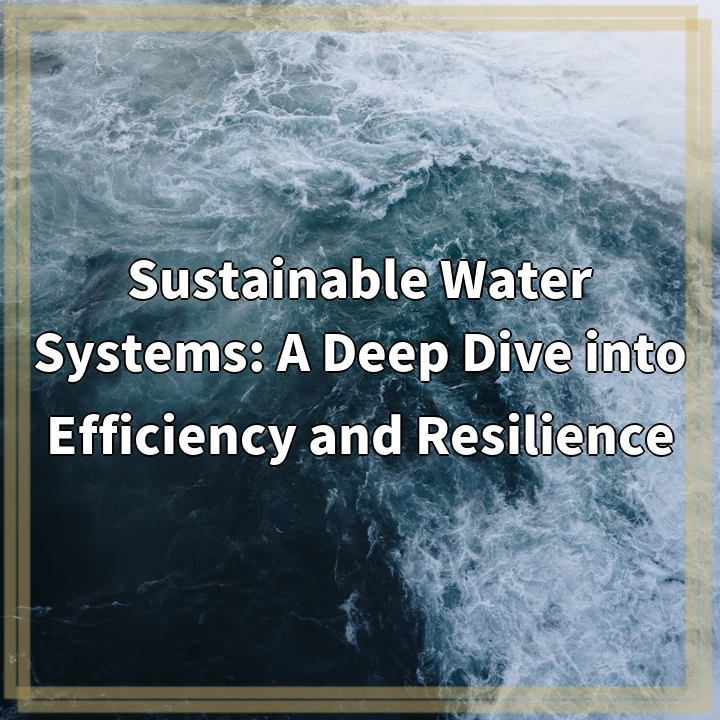
What is Sustainable Water Systems?
Sustainable water systems are innovative approaches to managing and utilizing water resources in an efficient, environmentally friendly, and economically viable manner. These systems aim to meet the current and future water needs of communities while minimizing the impact on ecosystems and the environment.
Real-World Problems Associated with Sustainable Water Systems
1. Water scarcity
One of the major challenges faced by sustainable water systems is water scarcity. As global populations continue to grow, the demand for water increases, placing significant stress on limited water resources. Climate change further exacerbates this issue, causing changes in precipitation patterns, increased frequency of droughts, and dwindling water supplies in certain regions.
2. Aging infrastructure
Many cities are struggling with outdated and crumbling water infrastructure, which poses risks to the efficiency and reliability of their water systems. Aging pipelines, treatment plants, and storage facilities can lead to water leaks, contamination, and inefficiencies in the distribution network.
3. Water pollution and contamination
Water pollution and contamination pose a serious threat to sustainable water systems. Industrial activities, agricultural run-offs, improper waste management, and inadequate wastewater treatment can pollute water sources, making them unsafe for human consumption and harming aquatic ecosystems.
4. Unequal access to clean water
Access to clean and safe water is not evenly distributed, with marginalized communities often facing the brunt of water insecurity. Lack of access to clean water can result in health issues, hinder educational opportunities, and perpetuate the cycle of poverty.
5. Water-energy nexus
The energy required for water treatment, distribution, and wastewater management contributes to greenhouse gas emissions and is a significant expense for water utilities. Developing sustainable water systems that minimize energy consumption and utilize renewable energy sources is crucial for reducing the environmental footprint and ensuring long-term viability.
By addressing these real-world problems, sustainable water systems can help create a more resilient and secure water future for both humans and the environment. Through efficient water management, innovative technologies, and community-driven initiatives, we can achieve a more sustainable and equitable water system.

Solutions for Sustainable Water Systems
1. Water efficiency and conservation
Improving water efficiency through measures like water-saving technologies, water audits, and public awareness campaigns can help mitigate water scarcity. Implementing water conservation practices such as rainwater harvesting, greywater reuse, and efficient irrigation systems can significantly reduce water demand.
2. Infrastructure upgrades and maintenance
Investing in the upgrade and maintenance of water infrastructure is crucial for improving the efficiency and reliability of water systems. This includes repairing and replacing aging pipelines, modernizing treatment plants, and implementing smart water management technologies.
3. Enhanced water quality management
Implementing stringent regulations and robust monitoring systems can help address water pollution and contamination issues. Upgrading wastewater treatment facilities, promoting eco-friendly agricultural practices, and encouraging proper waste management can reduce the pollutants entering water sources.
4. Promoting water equity
To ensure equitable access to clean water, it is important to implement policies that prioritize marginalized communities and address water inequities. This includes improving infrastructure in underserved areas, subsidizing water costs for low-income households, and engaging communities in water management decisions.
5. Renewable energy integration
Reducing the energy footprint of water systems can be achieved by integrating renewable energy sources such as solar and wind power. Investing in energy-efficient technologies, optimizing energy use in water treatment and distribution, and exploring innovative energy-water nexus solutions will help in reducing greenhouse gas emissions and operational costs.
By implementing these solutions, we can promote the development of sustainable water systems that are efficient, resilient, and equitable. It requires collaboration between governments, water utilities, communities, and individuals to prioritize sustainable and responsible water management practices.















